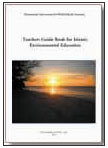|
|
|
|
 |
|
TANZANIA: Fishermen say no to dynamite - using Islamic environmental principles
Update: January, 2011
 |
 |
 |
IFEES' Islamic Conservation guide. |
On 29th February 2008, the Islamic Foundation for Ecology and Environmental Sciences (IFEES) launched the world’s first Islamic conservation guide on Pemba Island, Tanzania. The guide uses lessons from the Qur’an to show how vital fishing sources can be protected. Further information on the Islamic conservation guide can be found on the IFEES website.
In 2000 the Muslim fishing communities of Pemba and Misali islands in Tanzania pledged to conserve Misali Island. Behind this Sacred Gift - given by both the Government of Zanzibar (as land manager and owner of all land and sea in Zanzibar), and the Misali fishing community (as traditional owners, managers and users of the area) - was an extraordinary story.
Misali Island is one of the most important turtle nesting sites in the Zanzibar archipelago and home to some of the most magnificent coral slopes in the western Indian Ocean. In the 1990s it was under severe threat from dynamite-fishing.
For the 1,600 or so fishermen who were traditional owners of the area, dynamite fishing seemed a blessing. Suddenly, instead of having to waste time looking for fish sites, they just dropped some explosives and there was plenty to eat.
What they did not know (and did not think was their business) was the terrible destruction they were doing, not just to the fragile reef ecosystem but also to their own long-term survival. Dynamite takes out young fish along with the mature ones, while traditional fishing leaves the young to slip through the nets and breed later. The explosion also destroys the very environment within which the fish live. In the long run, nobody benefits.
The question became how to help the fishermen understand the problems they were causing, and then stop them. It was the kind of environmental problem that many governments around the world are trying to address.
At first, the government and environmental agencies launched an education program. But few fishermen paid attention to government leaflets. Then dynamite fishing was officially banned. Despite the threat of gunboats the communities refused to accept the ban.
Then a startlingly simple solution was developed. The fishing villages of the East African coast are mostly Muslim, organized under a religious leadership of sheiks who have enormous authority in the communities. The basis of these fishing families’ lives is Islam, with its Qur’an, Shariah laws, and the traditions and customs of the faith.
In 1998, in a joint venture with ARC, CARE International, WWF International and the Islamic Foundation for Ecology and Environmental Science, the sheiks on Masali island came together to explore Islamic teachings about the appropriate use of God’s creation. From these studies the sheiks drew the conclusion that dynamite fishing was illegal according to Islam. They used Qur’anic texts such as “O children of Adam! … eat and drink: but waste not by excess for Allah loveth not the wasters” (Surah 7:31) or Sura 6:141: "...it is He [Allah] who produces gardens, both cultivated and wild.... Eat of their fruits when they bear fruit and pay their dues on the day of their harvest, and do not be profligate. He does not love the profligate."
This Sacred Gift has already become a model for other Islamic fishing communities around the world.
Link here to read an article in the Christian Science Monitor from October 2007.
Link here for information about other ARC/WWF Sacred Gifts:
CANADA AND USA: Catholic Leaders speak out for Columbia River Conservation
CAMBODIA: Pagodas become eco-campaigners
CHINA: Daoists support alternatives to endangered species used in traditional Chinese medicine
EGYPT: Cairo rubbish dump converted into public park
EUROPE: Union of Liberal and Progressive Synagogues conduct environmental audit
INDIA: Hindus restore sacred forests in Orissa
INDIA: Jains build a sustainable community in earthquake village
INDIA: Parsis recycle tonnes of flower offerings from Zoroastrian Fire Temples
INDIA: Rural women trained in literacy, health and conservation
INDIA: Sikhs promote sustainable energy in Gurdwara temples
INDIA: Zoroastrians Establish Sacred Baval Tree Groves
INDONESIA: Indigenous Batak Christians fight back against lake pollution
JAPAN: Shintos commit to sustainable management of sacred forests
LEBANON: Church protects one of the Mediterranean’s top 10 “Forest Hot Spots”
MEXICO: Huichol people take responsibility to protect ancient pilgrimage route
MONGOLIA: Buddhists reintroduce traditional hunting and logging bans
NEPAL: Hindus pledge to clean up sacred Bagmati River
SAUDI ARABIA: Rare species protected in first national biosphere reserve
SWEDEN: FSC Certification for Church Forests
UK: Christian Environmental Network promotes eco-awareness
UK: Major Jewish groups unite to protect the environment
UK: Manchester’s Gorton Monastery of St Francis is reborn as a “living centre”
UK: World’s first Centre for Islam and Ecology announced for Welsh University
USA: Benedictines engage students in civic eco-action
USA: United Methodists commit $40 billion to ethical investments
USA: United Methodists Say “No” to dioxins
USA: The Episcopal Power and Light Ministry promotes renewable energy
|
 |
|
|
|
|
|

